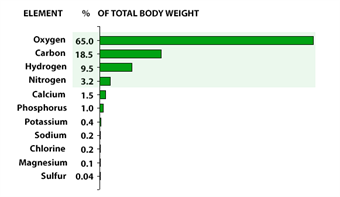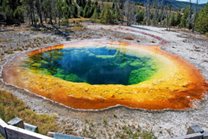Life limits - temperature
C. Carver, V. Hart, J. McRoberts, K. O’Regan, A. Rogalska, B. Tyril
Life can be thought of as complex chemical interactions, dependent on both the matter and environment present. The universe constantly creates pressures for life forms to adapt, potentially allowing alternative biochemistries to arise.
There are four elements which provide a basis for life; carbon, hydrogen, oxygen and nitrogen. Other elements, such as calcium, potassium and sodium are also vital for survival; these are known as trace elements.
It is already known that some of the trace elements can be substituted for other elements with similar chemical properties, for example tungsten can be substituted by molybdenum. Can other alternatives to carbon, hydrogen, oxygen and nitrogen also provide a basis for life?
Silicon is an abundant element with similar chemical properties to carbon; it has multiple valences and is able to form stable covalent bonds with itself and with other elements. Therefore silicon could be used as an alternative basis for life.

Figure 1 - Percentage by weight of elements in the human body
However, silicon based complexes combust spontaneously with oxygen and are not stable in an aqueous medium. Anhydrous and anaerobic conditions, such as the methane oceans on Titan, would be required to sustain silicon-based life.
The project next focused on the temperatures at which life is able to occur. Extremophiles are organisms capable of living in extreme environments, studying these will provide insight into the temperatures at which life can be sustained.

Figure 2 - Thermus aquaticus an example of an extremophile
Analysis of literature found that most research on extremophiles is done in vitro, extending to in vivo studies would provide greater insight into intracellular interactions.
It was found that there is a strong positive correlation between the optimal functional temperature and the denaturing temperature of the proteome and propose mechanisms, including increased rigidity or stronger bonds within proteins, to explain this.
Finally, it was found that the extremophiles adaptation for amino acid composition is the most imperative adaption for their survival.